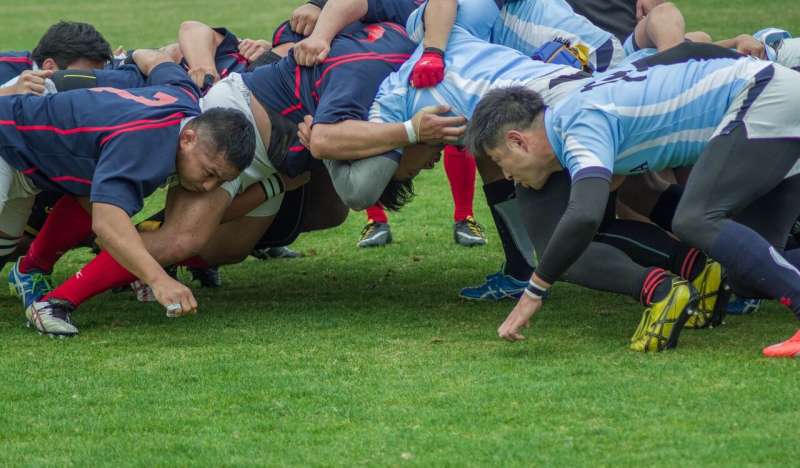This article has been reviewed according to Science X's editorial process and policies. Editors have highlighted the following attributes while ensuring the content's credibility:
fact-checked
trusted source
proofread
Can a good night's sleep protect collision sport athletes against concussion?

Australians love collision sports, whether it's Aussie Rules, Rugby League or Rugby Union.
Yet the adrenaline rush on the field may mask a significant cost—the heightened risk of concussion among players, especially young athletes.
Recent studies reveal that rugby players aged between 15 and 24 years face a higher concussion risk than their peers in other collision sports. And at the professional level, rugby players are more likely than not to suffer a concussion after 25 games.
Many of the dangers associated with concussion in collision sports may be long term, as there is some evidence that repeated head impact exposure may increase risk of later-life mental illness and brain diseases, such as chronic traumatic encephalopathy (CTE).
Growing concern around concussion in sports prompted the February release of new concussion guidelines for junior and community sports. Developed by the Australian Institute of Sport (AIS) in cooperation with Sports Medicine Australia, doctors and physiotherapists, the guidelines recommend that athletes wait at least 21 days before returning to competition following a concussion.
Is there a role for sleep in preventing concussion?
Dr. Spencer Roberts, a lecturer in Human Physiology from Deakin's School of Exercise and Nutrition Sciences and the Centre for Sport Research within the Institute for Physical Activity and Nutrition (IPAN), is leading research to identify the potential link between healthy sleep and reduced concussion risk in collision sports.
Dr. Roberts's initial pilot project in 2023 assessed how sleep—assessed using head-worn EEG devices—influenced the concussion risk of Australian Rules footballers. Head impacts were monitored throughout the season using instrumented mouth guards.
Early findings suggest that players who were concussed recorded poorer habitual sleep quality prior to their concussion than those who were not concussed.
This year, Dr. Roberts is continuing this work in adult Australian-rules footballers, and he is also launching a new study in youth rugby players.
"Youth collision sport athletes are exposed to head impacts during a critical phase of brain development, so there is a real need to examine youth athletes separately to their adult counterparts," Dr. Roberts says.
"It's still early days for this research, but If the data continue to show that poor sleep increases concussion risk, it will open the door for individualized prevention strategies to improve sleep and protect players' long-term health," he says.
More information: Australian Institute of Sport, Australian Concussion Guidelines For Youth And Community Sport (2024)





















